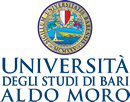Tra imitatio ed aemulatio: Bonaparte e la «géo-historiographie d’Alexandre»
Abstract
Building on the categories that Peter Green introduced in his treatment of the supposed imitatio and aemulatio of Alexander by Caesar, this paper examines the relationship between Napoleon and the Macedonian king, who was notoriously one of his main models. Its primary purpose is to shed light on the way in which Alexander is portrayed both in Napoleon’s writings (in particular, the notes he dictated at Longwood House) and in the works of the so-called ‘St Helena Evangelists’ rather than on the analogies that were drawn by his contemporaries and beyond. Particular attention is thus devoted to the question as to the extent to which Napoleon actually participated in the scholarly debates over the figure of Alexander that developed in eighteenth-century France and whether his view of the Macedonian can be interpreted along the lines of Pierre Briant’s distinction between the «courant Bossuet-Mably-Rollin-Sainte Croix» and the «courant» which sprang from Montesquieu. In that connection, special emphasis is also placed on the sources (both ancient and modern) upon which Napoleon drew to develop his interpretation of Alexander, especially the books he possessed in the period between his youth at Brienne and the end of his life at Longwood House. This paper argues that Napoleon’s approach to the Macedonian was essentially threefold, insofar as it was driven by his interests in ancient strategy and geography, but was also influenced by the heritage of the histoire moralisante. This conclusion also leads to a better understanding of Napoleon’s obsession with competing with and outdoing his ancient heroes, which is one of the most distinctive features of his approach to Greek and Roman history.
Parole chiave
Napoleon; Alexander the Great; imitatio Alexandri; Alexander historians; modern historiography of the ancient world; historical geography; Classical schoolarship; Orientalism.
Full Text
PDFDOI: https://doi.org/10.15162/2465-0951/1508
Refback
- Non ci sono refbacks, per ora.

